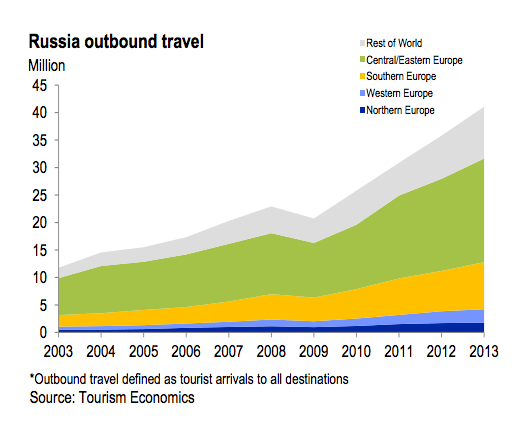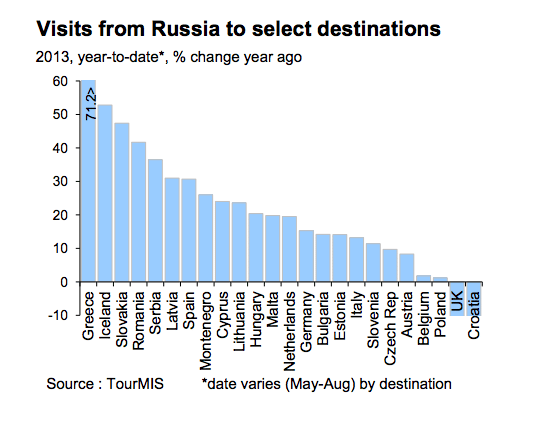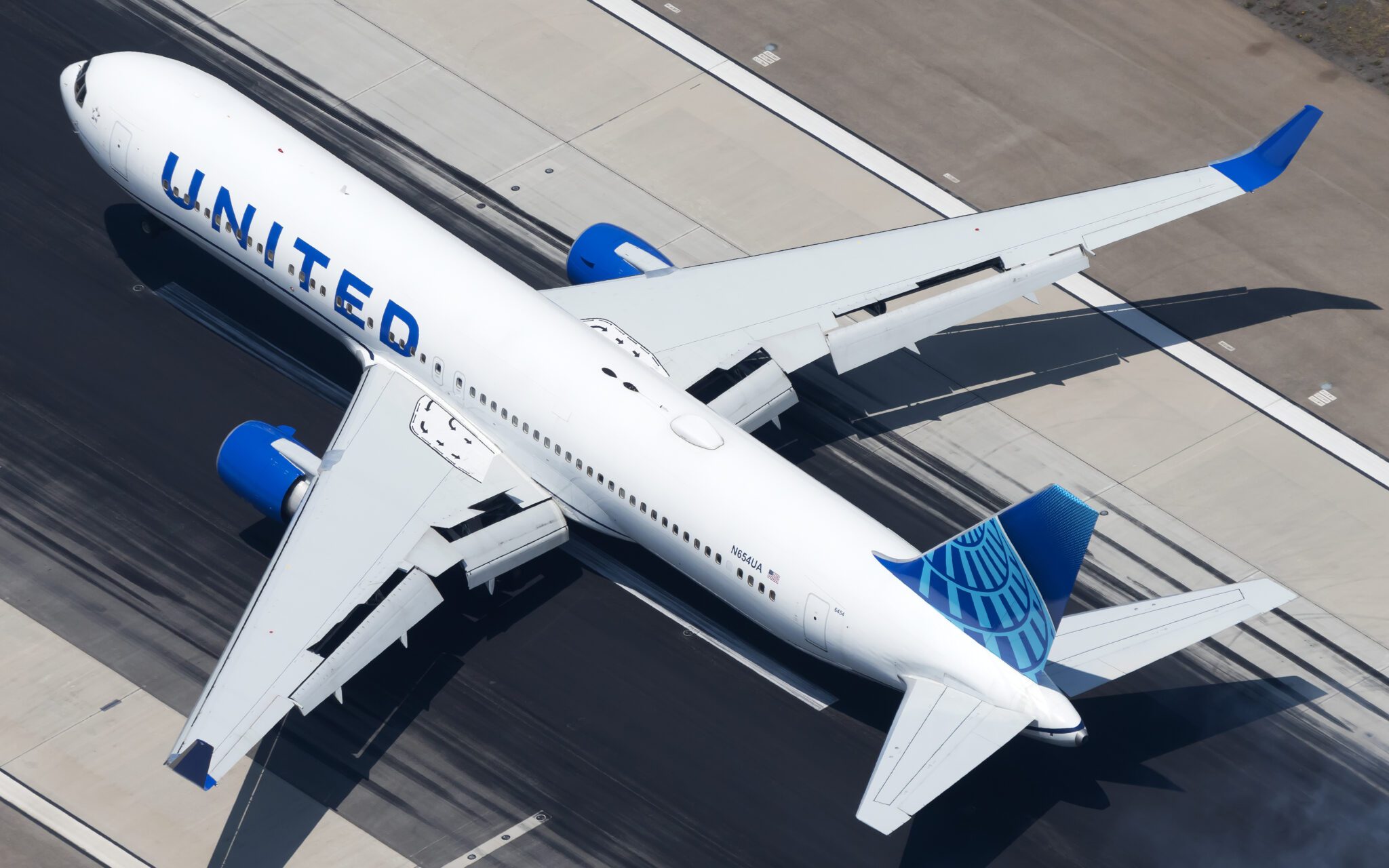Forget the Chinese, Russian Tourists Are Invading Europe

Skift Take
Attracting Chinese tourists has become amongst the biggest battle cries in all of travel globally, especially all over Europe. But a somewhat ignored second are the Russian outbound tourists, and they're having a big effect on the recovery of European tourism economy, according to latest Q3 2013 numbers from European Travel Commission.

As European tourism experienced a 5 percent year-to-date growth, well above Europe's long-term trend and close to growth in world’s fastest growing regions, travel demand from Russia persists at high growth levels, turning it into a consistent source of visitors for a growing number of European destinations.
These numbers are helping offset the negative performance of the Netherlands and Italy, two traditionally large source markets challenged by a negative economic climate.
European arrivals from Russia have roughly doubled between 2009 and 2013, taking an increased share of European demand from 3% to 6% of total European arrivals, according to ETC. Growth is now being shared by
several Western European destinations, having previously been skewed more towards
Eastern destinations.

Russian travel to Greece has been especially strong in 2013 as the fourth consecutive
year of double-digit growth. Travel volumes are now roughly five times larger than in
2009. Russia now comprises almost 9% Greek inbound, up from just 2% in 2009, according to ETC.
Some numbers from ETC, which show the rise of Russian tourists as a global force:
- 41.1 million tourists traveled from Russia in 2013. Of these, 31.6 million (77.0%) traveled within Europe, while only 9.4 million traveled to destinations outside Europe.
- Russian tourist arrivals to Northern Europe in 2013 totaled 1.8 million, representing 5.6% of Russian arrivals to Europe.
- Russian tourist arrivals to Western Europe in 2013 totaled 2.4 million, representing 7.7% of Russian arrivals to Europe.
- Russian tourist arrivals to Southern Europe in 2013 totaled 8.6 million, representing 27.1% of Russian arrivals to Europe.
- Russian tourist arrivals to Central/Eastern Europe in 2013 totaled 18.8 million, representing 59.6% of Russian arrivals to Europe.
- Northern Europe's share of the Russian market was 4.3% in 2013, a 0.4 percentage point increase from 2003.
- Western Europe's share of the Russian market was 6.0% in 2013, a 1.0 percentage point increase from 2003.
- Southern Europe's share of the Russian market was 21.8% in 2013, a 3.1 percentage point increase from 2003.
- Central/Eastern Europe's share of the Russian market was 51.2% in 2013, a 11.6 percentage point decrease from 2003.
- International outbound travel from Russia is forecast to grow 6.8% per year on average to 2018.
- Arrivals to Northern Europe are expected to increase 25.4% through 2018, to 2.2 million. Northern Europe's share of the Russian market is forecast to fall to 3.9% in 2018.
- Arrivals to Western Europe are expected to increase 28.3% through 2018, to 3.1 million. Western Europe's share of the Russian market is forecast to fall to 5.5% in 2018.
- Arrivals to Southern Europe are expected to increase 50.9% through 2018, to 12.9 million. Southern Europe's share of the Russian market is forecast to rise to 23.5% in 2018.
- Arrivals to Central/Eastern Europe are expected to increase 27.5% through 2018, to 24.0 million. Central/Eastern Europe's share of the Russian market is forecast to fall to 46.4% in 2018.





